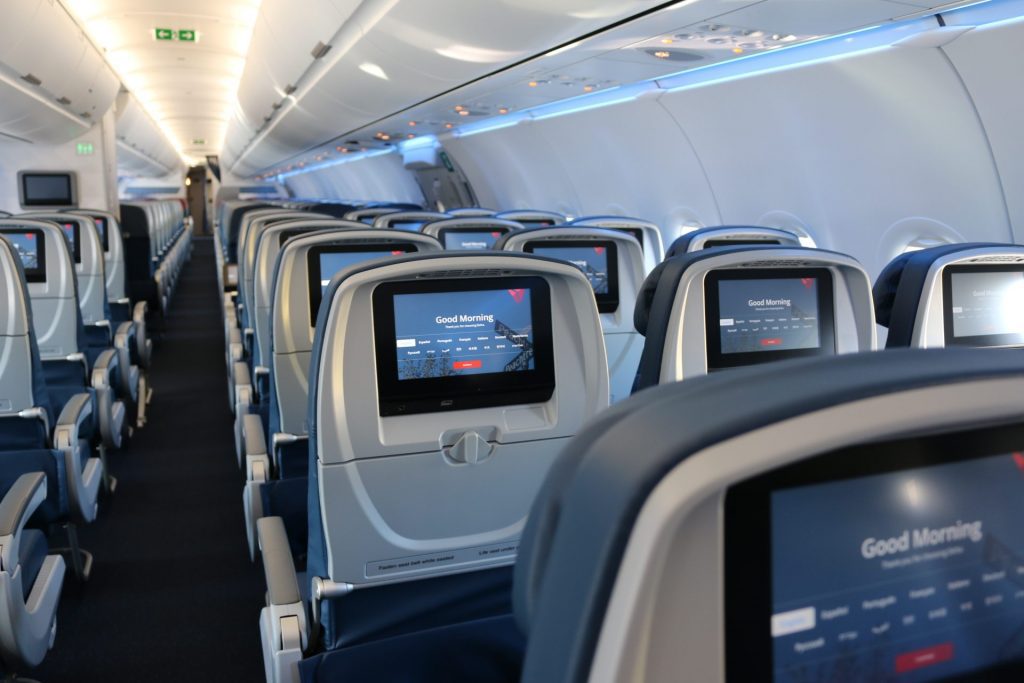Skift Take
Richard Anderson, the former Delta Air Lines CEO, loved to talk about how Delta was a high-quality industrial company. Delta is a great airline, no doubt. But let's be honest: Airlines are not regular companies. We're now being reminded of that fact.
 Skift Editor-at-Large Brian Sumers writes this column with a critical eye on the important global issues impacting the airline industry, from the middle seat of the last row in economy class to the boardrooms of the world's largest carriers.
Skift Editor-at-Large Brian Sumers writes this column with a critical eye on the important global issues impacting the airline industry, from the middle seat of the last row in economy class to the boardrooms of the world's largest carriers.
When the Trump Administration, a.k.a taxpayers, bails out U.S. airlines for $50 billion or more — it will happen, whether or not anyone uses the “b” word — many travelers will react with righteous indignation. They will say, how dare they? Or, they deserve to go out of business.
These people will have a point. Many airlines made a fatal error in the past five years. Business was so good airlines thought they were real companies. They figured they could leverage good times to push profits into the stratosphere. As they added fees while reducing passenger comfort, carriers wanted to prove to investors they were every bit as “real” as Federal Express or even Amazon. They also pushed to buy back stock, with the largest carriers using 96 percent of their free cash flow over 10 years to buy back shares, according to Bloomberg.
I bought the hype, too. Airlines are for-profit businesses, I said, and they deserve to maximize revenues, even if it meant a mother and son could not sit next to each other for free, or a family could not afford to go home for Christmas. I even defended the reduction in space, from the skinnier seats to tiny bathrooms, noting airlines needed to maximize every square inch to offer low fares and still generate investor return.
Get the Latest on Coronavirus and the Travel Industry on Skift’s Liveblog
I’m not completely changing my stance. After the bailouts, reconstituted airlines will be for-profit companies, and they should charge for extras passengers value. They also should set ticket prices according to the laws of supply and demand, because that’s the best way to price a scarce, perishable asset. Passengers might hate high prices, but they also would hate learning a flight sold out six months in advance.
Still, after airlines receive tens of billions in taxpayer subsidies, they need to be honest with themselves. Now, and in the future, they’re more susceptible to external shocks than other large businesses. You can argue coronavirus is a once-in-a-century phenomenon, but given how airlines operate, some kind of shock was bound to happen. Airlines are not regular businesses, and they don’t need to be run that way.
So when this saga is over, and airlines get their billions, I call on them to show some humility. Stop with all this talk about how investors are undervaluing them, and how they deserve to be treated like other high-quality industrial companies. It’s bollocks.
Airlines are what they are. They are publicly traded public utilities, akin to the water or electric company. Some of those trade on public markets, too, including PG&E in San Francisco. They can make money, and return profits to shareholders.
Airlines can mimic those companies. But let’s stop with this fantasy that airlines are normal business. Yes, they are publicly-trade corporations, but they also rely on government subsidies to run their operations. Do they think terminal rents pay for the entire cost of running a major airport?
This is not an argument for a return to regulation. If airlines want to charge $10,000 for a last-minute transatlantic flight, that’s fine. (Of course, it’ll be awhile before demand recovers enough to let them command those prices.) Heck, if they want to charge more for an aisle seat than a window, that’s OK, too. (It is a better seat.)
But the arrogance needs to go. Executives need to know they’re not running a typical business. U.S. airlines are a national asset, so important to our transportation network that they can’t fail.
So when the boom times return — and they will, because at their core, Americans love to travel — airlines need to rethink how they interact with investors and customers. They can make money, even lots of it, but they should reconsider whether they must stretch for that extra half-point of margin, especially if whatever they want to sell will piss people off.
The Daily Newsletter
Our daily coverage of the global travel industry. Written by editors and analysts from across Skift’s brands.
Have a confidential tip for Skift? Get in touch
Tags: american airlines, delta air lines, united airlines
Photo credit: Delta Air Lines wanted investors to treat it like a high-quality industrial company. Picture is an Airbus A321. Delta Air Lines
